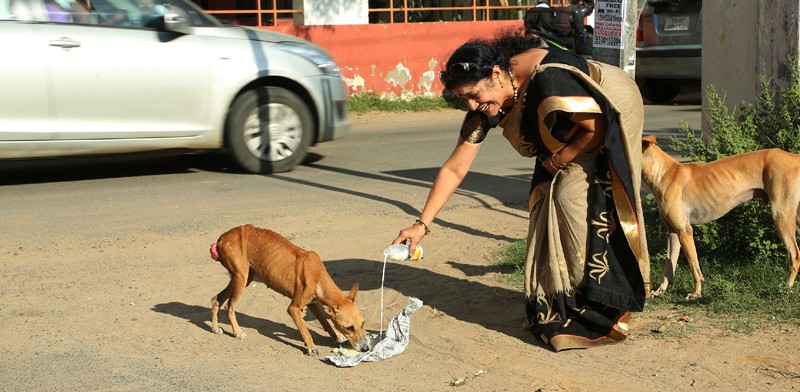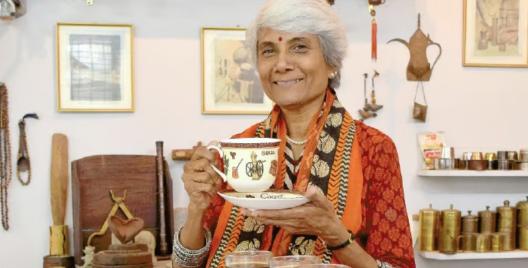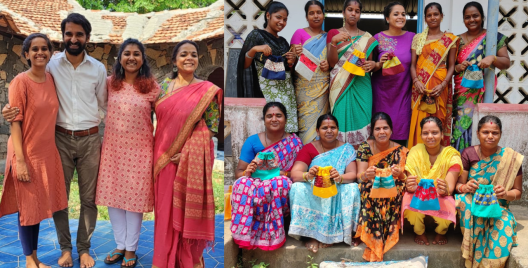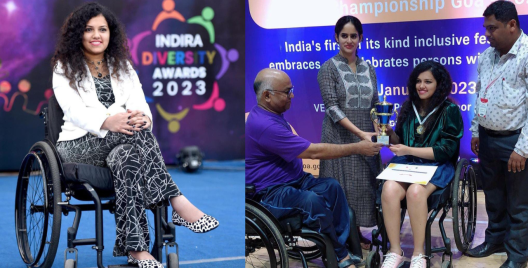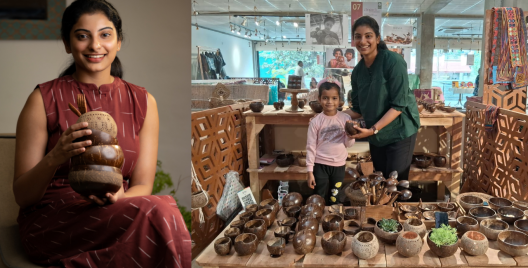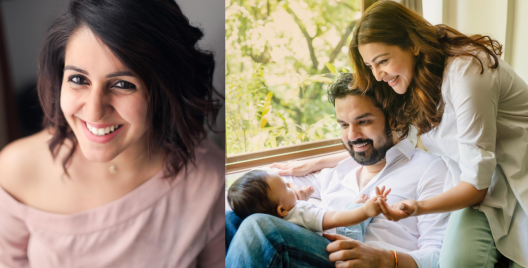Daughter of veteran actress Sowcar Janaki, Yagna Prabha has taken the standard of humanity to a special level, dedicating 45 years of her life to the care of four-legged furry friends on the street. She turned 70 this year, and continues her work, inspiring the world around her to push a little closer to kindness.
A typical day in her life begins early in the morning in her kitchen, where she cooks for herself and the 300 street dogs that await her eagerly. “Since we are all strict vegetarians, I have a separate fridge and utensils for the dog feed. After finishing my household chores, I head out. From my home at Thoraipakkam to Perungudi and T Nagar to Adyar, I would drive no less than 70 kilometers each day feeding my children on the road. I get the food wrapped in small packets and then go around feeding dogs. Now unfortunately, I’m now not allowed to drive owing to a recent knee injury. So I take an auto.”
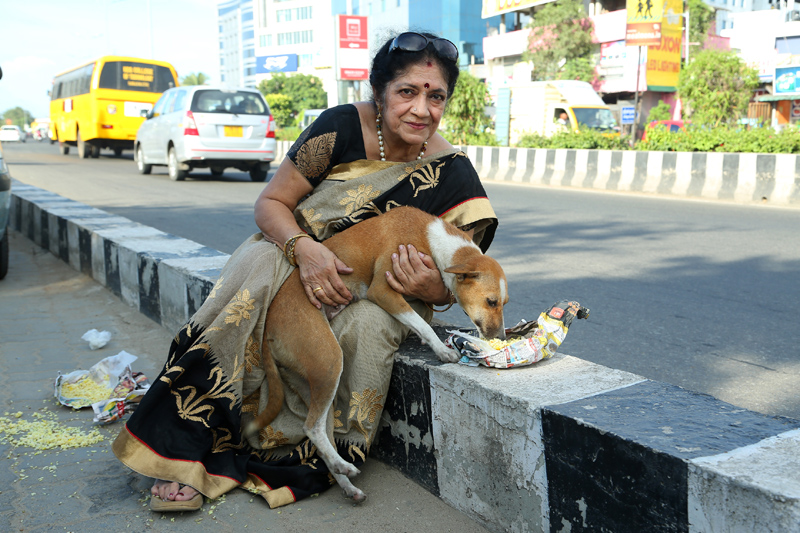
Compassion was a virtue she had grown up with; Yagna has always had a kind heart and was very sensitive to suffering. She never had pets growing up. It was when she moved from Gujarat to Chennai that her quest for life began. “I was going through a very rough phase in my life. I was depressed. That’s when Manasa, my first pet walked into my life.”
It was when she was driving down T Nagar one day Yagna spotted a small stray pup on the street. From the nearby tea shop, she bought her a packet of milk. The second day too she did the same. The third day, when she reached the place, there was a road being laid.
When she started looking for the pup the workers told her that the little pup had gotten herself stuck in the hot tar, and was probably dead by now. “She was stuck in tar and we threw her away,” is what they told me. I refused to believe that and went looking for her. Suddenly I heard a noise and then I stopped to see her covered in tar, crying for help. We rushed her to the nearby veterinary hospital and saved the poor soul.” The puppy was covered in one-inch layer of tar. She began recovering after clean up and medical help. Yagna decided to bring her home and laid her down on a banana leaf. “We named her Manasa and she was the first pup that I adopted.”
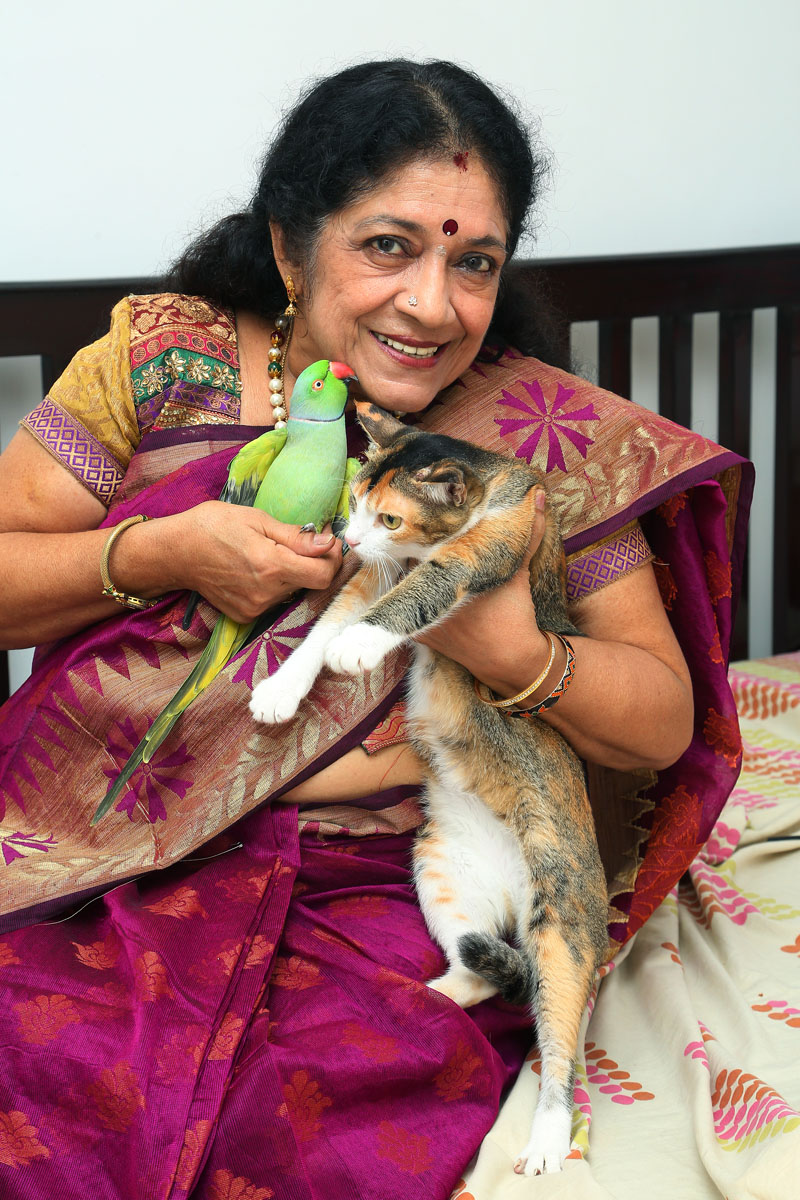
It was after Mansa was adopted that Yagna started feeding all the dogs in her street, then slowly all the street dogs in T nagar. Over time she realized that this was helping her too; she was healing from her emotional pain. She had risen with a new purpose in life. And since then she has adopted more than 300 dogs over her 45 years of service.
After Manasa, she rescued and adopted 15 more dogs from the streets and continued feeding the strays. However, the apartment she lived in was getting crowded and the residents of the place started complaining. She knew she had to look for a bigger and better home for her babies. She then bought a piece of land out of her savings on the East Coast Road and began setting up her shelter. Maneka Gandhi offered her the grant and also funded a setup to run as a shelter. A Maruti Omni animal ambulance van with a blue light was also arranged. “I would drive the ambulance myself. We rescued many dogs from the East Coast Road of Chennai .The shelter that opened had 40 rooms, 100 square feet each and none of the pets are tied. They are all vaccinated and dewormed.”
When Sri Sathya Sai Prani Seva shelters opened, it had about 112 dogs. Today a new shelter is opened at Kovalam that houses 22 dogs. “It went up to 112 dogs. But today I have only 22, because there is always the question of who will take care of them after me. No matter how much I push myself, my age and health has limited me. “
Yagna Prabha has been avoiding a knee operation because she is worried that hundreds of her babies in the street will starve if she has to be in bed, resting. “I am feeding 350 dogs in the city today. 40 kilos of food is made every day. There are three places where we cook the food – 8 kilos at the shelter, 12 kilos at my residence and 20 kilos at a rented place in T Nagar. The food is rice with liver, and for weaker dogs we increase the portion of liver for their betterment. Every day, the food is distributed by lunch time.”
“Kindness costs nothing. The plight of these animals is miserable. You see cattle chewing on garbage, consuming plastic and other toxic substances. They are left to the streets uncared for. Although one person cannot change it all single-handedly, I do all I can in the hope that someday, somewhere, someone else will also shoulder a similar weight upon themselves,” she concludes.




